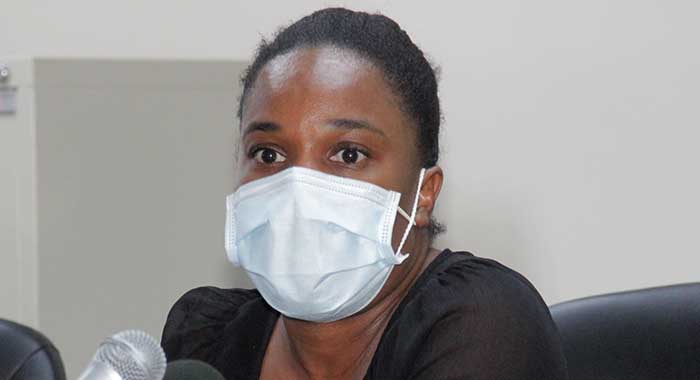While hydration is important for patients with dengue, this is especially the case for young children, a physician has warned.
“For emphasis, the warning signs, and the public must get this: if you are having severe abdominal pain, you are vomiting to the point where you are not keeping liquids down, you are droopy – well, the family members would notice this – you are restless or there is bleeding, there is an urgent need to seek immediate medical attention,” Dr. Jose Davy, an infectious diseases specialist, told a a Ministry of Health press conference in Kingstown on Tuesday.
St. Vincent and the Grenadines is battling its worse dengue outbreak since 2012, with children 15 years and under representing more than 50% of the 274 confirmed cases.
Dr. Mishka Duncan-Adams, consultant paediatrician at the Milton Cato Memorial Hospital (MCMH) told the media that children dehydrate more easily because of their smaller body size.
“In light of the fact that children are smaller beings, they tend to get easily dehydrated and this is something that we are very concerned about because we do have an increase of dengue in the country and a lot of children will be having fevers, they will be having vomiting, they will be having decreased appetite,” Duncan-Adams said.
She continued:
“All of these are factors that will constitute dehydration. If your child is sick and you suspect that this child has dengue, it is very important –and the smaller the child, even more important — that you check a healthcare provider, that you try to have you child hydrated as much as possible.”
Dengue is a mosquito-borne viral illness, the symptoms of which include very high fever, joint pain, back pain, and headache (usually behind the eye), reddening of the skin, vomiting, and diarrhoea.
Duncan-Adams said that a smaller child who is unable to say that they have a headache or anything like that may be found to have high fevers, decreased appetite, and may be more irritable than usual.
‘So you may have a baby that is crying and is inconsolable as much as you try to console this child and the appetite would have decreased.”
Another sign of dengue may be a maculopapular rash (a rash made of both flat and raised skin lesions), which is very characteristic of dengue.
The rash may not be easily observed but the child might complain of an itch, or may scratch the area.
“They may have joint pain and smaller children may not want to walk or lie on the ground because of the joint pain. They are very achy and may be noticed to have vomiting, diarrhoea, abdominal distension and bleeding…”
Hydration includes increased breast-feeding , Duncan-Adams said, adding that in addition to monitoring the hydration through consumption, parents have to be vigilant as it relates to the child’s urine output.
“If you notice that there is a decrease in the number of Pampers (disposable diapers) [that needs to be changed in a day] you need to seek a healthcare provider and seek a healthcare provider in due time, [do] not waste time, because children become very dehydrated at a quicker rate than adults. So that is something that is very important that I would like to transmit.”
Duncan-Adams said that in a few cases, even with opportune management, persons can progress to a haemorrhagic form of the illness and more intensive therapy is required.
Meanwhile, Davy told the press briefing that with the haemorrhagic form of the disease, “there may be bleeding from any and everywhere you can think of, literally any and everywhere.
“So the person may brush their teeth and find that their gum is bleeding, they may also have extended menses or period, or they may have nose bleeds. You name it. Wherever someone can bleed from, they may bleed from, hence the reason we say dengue is a haemorrhagic disease,” Davy said.
She further stated:
Medical personnel are suggesting increased breastfeeding in children, and consumption of water, coconut water or fruit juice to maintain hydration.






